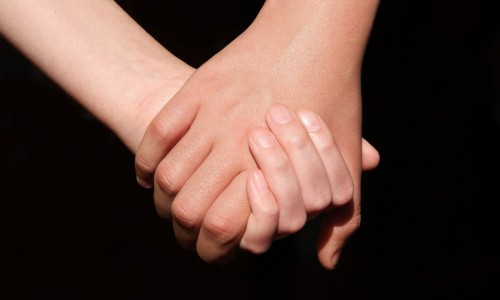Estimated reading time: 4 minutes
Did you know that hundreds of studies over the last forty years or more support the idea that romantic love is an attachment bond?
What this means is that throughout life, as a human you are wired to seek out and preserve physical and emotional closeness with at least one special person. And that person’s place can’t be filled by anyone else when you’re attached to them. This person becomes your primary attachment figure, the person you turn to for help and support.
Research has shown that particularly in times of stress, when you’re in doubt, anxious or sick, you seek out this irreplaceable person. That’s just the way you’re built. How people form an attachment to a romantic partner is one of the most studied topics in the relational sciences.
Romantic attachments
A romantic attachment (also called pair-bonding) is a deep emotional bond to another individual. The tendency to form a deep emotional bond to another individual is a universal feature of human life.
The attachments you form to your romantic partners are designed by evolution to keep you together. When you form an attachment to a romantic partner, you want to be near that person. And you tend to feel safe and secure when your partner is around. Overall, forming an attachment was designed to help create stability.
Not only do you form attachments to your romantic partners, but the loss of a partner can be devastating. If you are attached to someone and the relationship comes to an end, the sense of loss can be overwhelming—including feelings of uncertainty, fear, and despair. Here is what you can do about fixing a broken heart.
Deep emotional attachments
Adults form a deep emotional attachment based on intimate physical contact—kissing, cuddling, being emotionally and sexually intimate etc. If you have repeated intimate contact with another person, you will most likely form a deep attachment to that person. Once an attachment is formed, you want to spend more time together, feel safe and secure in each other’s presence, and you will experience loss when the relationship comes to an end.
Watch biological anthropologist Helen Fischer talk about your brain on love hormones. Play close attention to how the bonding hormone oxytocin creates attachment.
Romantic attachments are designed to keep you together because over the course of human evolution, people who stayed together had an easier time raising offspring than people who only came together for the purposes of sex.
The downside to attachment bonds
While attachments help create stability, there is a downside. Attachments are less concerned that you are happy with your partner and more concerned that you stay together.
In fact, many people form an attachment to someone they do not like as a person. It is quite possible to form a deep bond to someone who is less than an ideal romantic partner—this happens every day. Read How to Pick Your Life Partner for helpful information on making the right choice.
The lesson to be learned?
Be careful about who you have repeated intimate contact with because you are likely to form an attachment to that person. And once an attachment is formed, it can be very difficult to break.
So, going slow at the start of a relationship, especially when it comes to sex, is important. It is good to learn as much as you can about another person before you become heavily involved. Especially, if possible, learn about their attachment style. Listen to how they speak about past partners and family connections. Many relationship problems could be avoided, if people listened more to the other and did not rush into forming an attachment with someone.
Here’s a quick questionnaire on attachment styles
Take time to see if they are trustworthy. It takes months or sometimes longer for someone’s behaviour to prove that they have earned your trust. Do not give someone your trust before you have behavioural proof that they deserve it. They need to earn your trust, just as much as you need to earn theirs.
If you’re interested in getting help in dealing with romantic attachment issues call 0421 961 687 or email me to schedule an appointment. International callers should call +61 421 961 687.
You deserve the best trained relationship coaches if you’re planning to invest time and money in your relationship. If you’re not ready to book an appointment, call us on 0421 961 687 to book a FREE 15 minute phone consultation to discuss how we may be able to assist you.
Note – this page is adapted from Bowlby, Ainsworth, Shaver, Hazan and Zeifman’s work on attachment theory.


I just want to say a big thank you, ma’am. May God bless you abundantly.
Spot on with this write-up, I seriously believe that this amazing site
needs much more attention. I’ll probably be returning to read through more, thanks
for the advice!
I have to thank you for the efforts you’ve put in penning this site.
I really hope to view the same high-grade blog posts from you in the
future as well. In truth, your creative writing abilities has encouraged me to get
my own, personal website now 😉
Very informative article Vivian. I love how you write and think.
Thanks for your feedback Melissa!